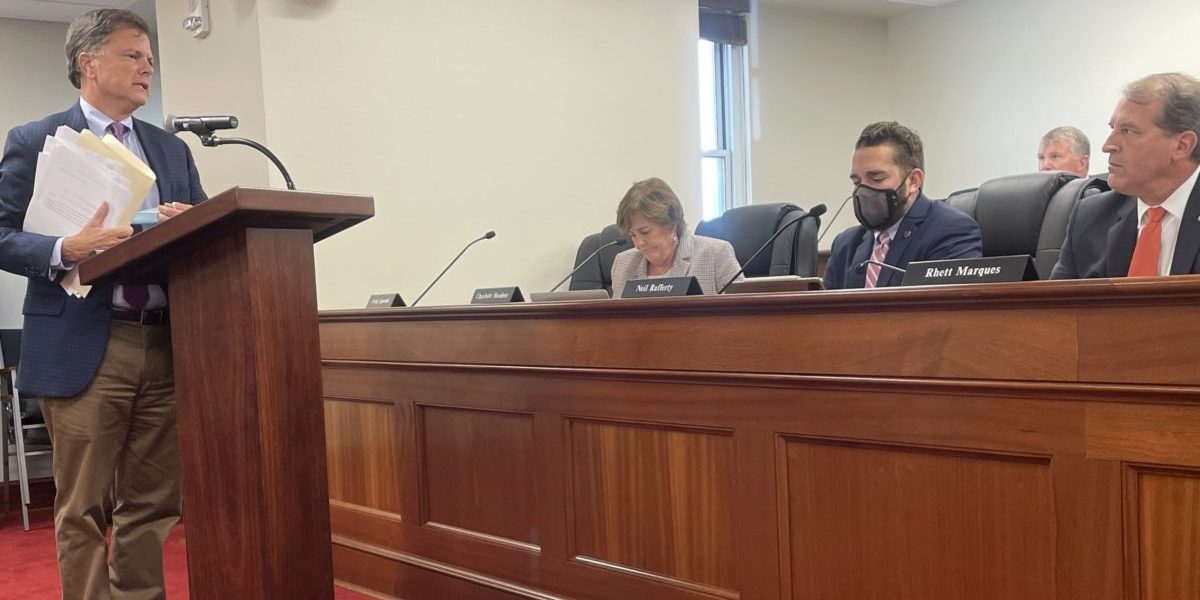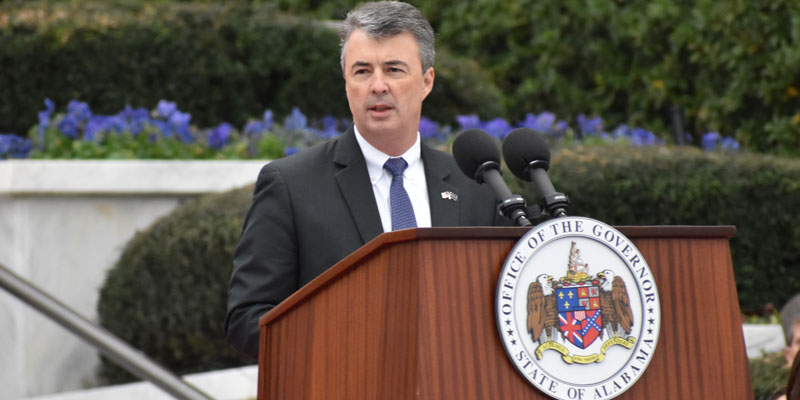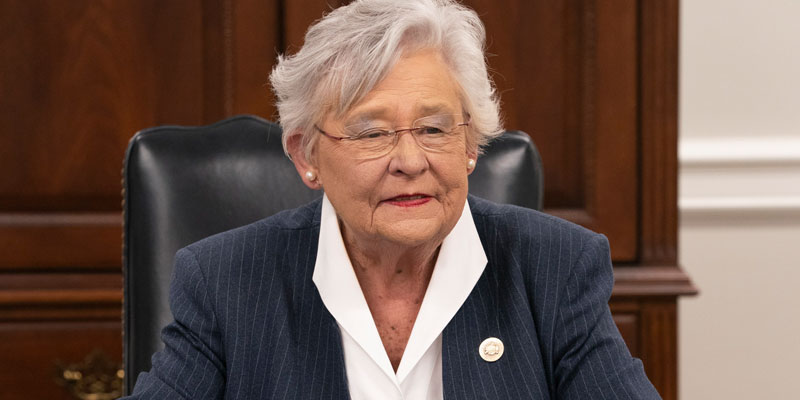MONTGOMERY — The House Health Committee on Wednesday approved two anti-vaccine discrimination bills which passed the Senate the day before.
Senate Bill 15 and Senate Bill 9 both received favorable reports in their designated lower chamber committee.
Relating to strengthening the state’s ban on so-called vaccine passports, Senate Bill 15 received slight pushback from some in attendance during the public hearing portion of the meeting. During Tuesday’s debate of the legislation, the Senate, with objection from sponsor State Sen. Arthur Orr (R-Decatur), amended the original vaccine passport ban to apply only to COVID-19 vaccines.
Kaycee Cavender of Health Freedom Alabama spoke in opposition to the bill as currently written due to it only being applicable to COVID-19 vaccines. She detailed that some across the state, prior to the ban on vaccine passports, were being denied health care by some physicians due to patients being unvaccinated against certain viruses.
“What [the original vaccine passport ban] did is it allowed families like mine to finally have access to health care,” proclaimed Cavender. “Pediatricians across the state were denying care to my children and to other children if [they] were not fully vaccinated…”
Orr addressed the committee to detail the changes that were made during debate.
“The bill was on the floor, an amendment was brought to make the original passport bill COVID-specific,” advised Orr. “The amendment was adopted, it was a split vote 25-7. I personally opposed it but the majority decided to put it on the bill.”
Committee member State Rep. Pebblin Warren (D-Tuskegee) inquired with the senator regarding how the bill could affect the business community.
According to Orr, the bill, as crafted, would have no negative implications for businesses.
“This is not an employer-employee bill at all,” responded Orr. “It’s for admission into businesses or government buildings, public places that you cannot restrict entry based on your vaccination status. As far as employment area – it’s not affected to my knowledge.”
Upon receiving public feedback and questioning, Senate Bill 15 was granted the committee’s approval.
The committee then took up debate on Senate Bill 9, legislation designed to protect workers’ rights concerning COVID-19 vaccine mandates. While citizens conveyed concerns over the bill, its most notable opponent was the Business Council of Alabama (BCA).
BCA interim executive director Robin Stone was present to address committee members regarding concerns the influential business advocacy organization held relating to Senate Bill 9.
While noting the BCA opposes President Joe Biden’s vaccine mandates, Stone outlined the organization’s opposition to the legislation.
“The current vaccine mandate bill moving through the Alabama Legislature, while well intended, causes confusion and places Alabama employers in a no-win situation by forcing them to comply with the proposed state legislation and existing federal orders,” said Stone.
He added, “BCA opposes mandates on employers such as the president’s executive order and Senate Bill 9 that was approved by the Alabama Senate yesterday. This legislation would prevent Alabama employers from making their own personnel decisions and place that authority in the hands of state government.”
A representative with the Alabama Department of Labor (ADOL) also attended the meeting to express concerns the agency had due to the bill involving the department in the administrative process of the legislation.
As crafted, the bill would allow employers to appeal workers’ claimed vaccination exemptions to ADOL. The department stated its desire to be removed from the process entirely.
State Rep. Mike Jones (R-Andalusia), speaking on the bill’s behalf, expressed that the legislation garnering opposition from both the BCA and concerned citizens alike indicated that it was a well-balanced piece of legislation.
“Usually a fairly good indicator that you’re mediating in the right direction is not everybody’s loving it,” asserted Stone.
He added, “We try to find a way that we can also protect the jobs of the individual but also not at the same time lose jobs because they lose federal contracts… So that’s the effort that’s been done working through this process in coming up with a piece of legislation and make it work.”
Senate Bill 9 received a favorable report from the committee. Both pieces of legislation approved by the committee will head to the House floor on Thursday. Legislators will have the opportunity to vote on final passage and send the bills to the desk of Gov. Kay Ivey (R-AL).
Redistricting
Concerning the original intent of the special session, which was to address redistricting process, both chambers have granted authorization to all proposed congressional, legislative and school board district maps.
Wednesday’s legislative day saw the Senate pass the House’s version of the new congressional district maps. Likewise, the lower chamber approved the new state school board district maps, formerly passed by the Senate. Finally, both chambers passed each respective body’s legislative district maps.
The refreshed district maps now head to the governor for final signature.
However, the redistricting process is not yet fully complete as legislative leadership expects the minority party to challenge the process in court.
Co-chairman of the Joint Committee on Reapportionment State Rep. Chris Pringle (R-Mobile) indicated that Democrats are likely to immediately file suit against the newly-approved maps.
“We reached a milestone but the process is not over,” Pringle told Yellowhammer News. “I’m sure in the next 24 hours there will be lawsuits filed and we’ll begin the process of litigating it.”
When asked about Democrats’ merits of a potential lawsuit, Pringle asserted that the legislature successfully complied with all applicable laws regarding redistricting.
“I’m sure they’ll come up with something,” advised Pringle. “We think we’ve drawn a good plan that complies with the 14th Amendment and the Voting Rights Act.”
Pringle noted that Democrats’ objections during floor debate were not based on how the maps were drawn but rather the process in which the redistricting was conducted.
In a statement provided to Yellowhammer News, Senate President Pro Tem Greg Reed (R-Jasper) praised Reapportionment Committee co-chair Jim McClendon (R-Springville) for his efforts throughout the process.
“A lot of hard work has been put into this effort to redraw district lines, and it has been done under unusual circumstances due to the delay of census data being released by the federal government,” stated Reed. “I would like to thank Senator Jim McClendon for the fantastic job he did in drawing these maps and shepherding them through the legislature.”
Dylan Smith is a staff writer for Yellowhammer News. You can follow him on Twitter @DylanSmithAL













